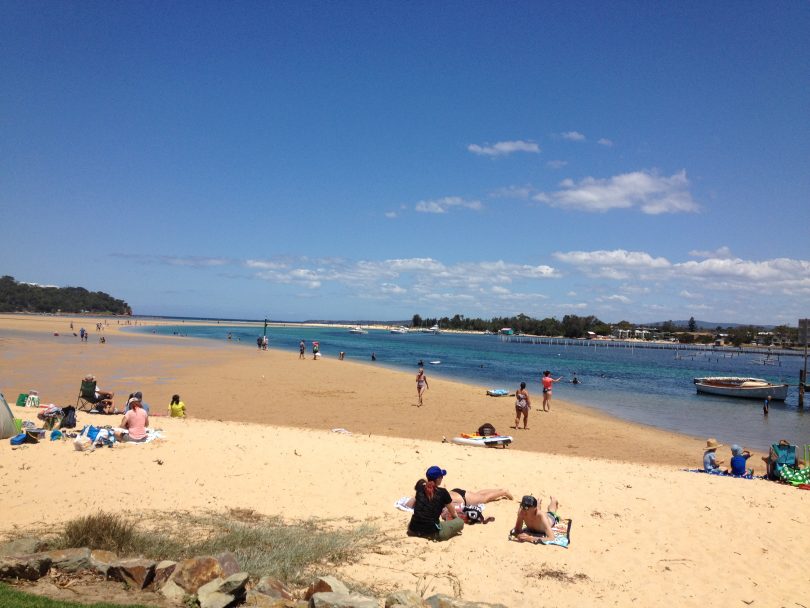
Sunday, January 6 was picture perfect at Merimbula’s Spencer Park. Photo: Elka Wood.
Chris Young, secretary of the Merimbula Big Game and Lakes Angling Club, has been up since 4:30 am and fishing all day.
It’s now 2:30 pm on Sunday the January 6 and Young is still going strong, getting ready for his club’s annual charity fish auction, which this year benefits Merimbula Marine Rescue.
“It’s illegal for recreational anglers to sell the fish they catch,” Young explains from Merimbula’s Spencer Park, where the auction is held, “but we get a special permit once a year from fisheries to auction off the fish we catch.”
It may not have been the best day of fishing Young has experienced.“It’s been a hard weekend, not much biting,” Young says, “probably this sudden change in weather.” But it’s perfect weather for lounging on the sand or grass in the park, enjoying a sausage sandwich courtesy of Marine Rescue members.
“The last few years we’ve given the proceeds of the auction and raffles to the Rural Fire Brigade,” says Young, “but this year we’ve changed to Marine Rescue – we’ll help them for a few years and then rotate on to another charity. But whoever we choose, we ask them to get involved and help out over the weekend.”
Barry Hooper is a volunteer with Merimbula Marine Rescue and says he is always head barbeque chef at any fundraiser.
“I’m a part-time butcher,” Hooper says, flipping burgers and onions “and I made up all the burgers myself.”
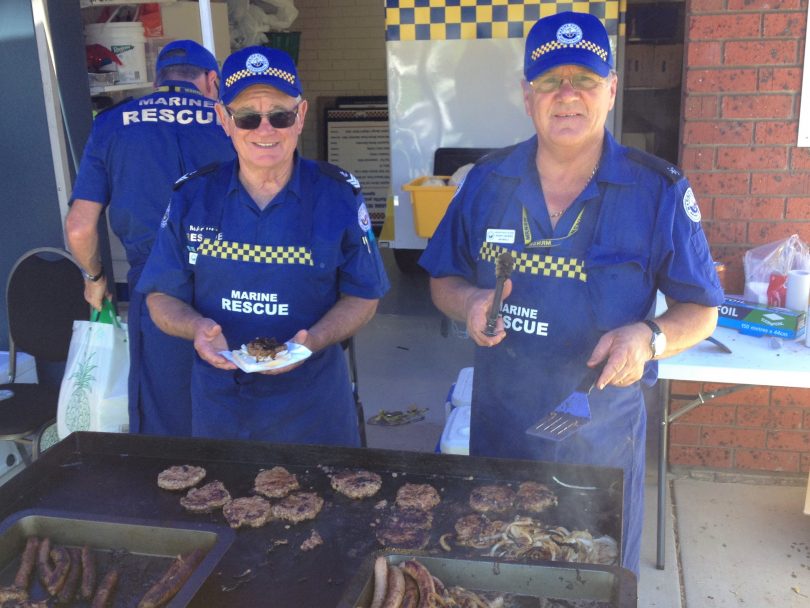
Barry Hooper, right, helps out Merimbula Marine Rescue by making burgers and manning the BBQ at fundraising events. Photo: Elka Wood.
The partnership with Marine Rescue is a natural one, as they are already room-mates with the Angling Club; Marine Rescue is situated downstairs and the club upstairs in the two-storey brick building located at Spencer Park.
Marine Rescue is sorely in need of the funding, says Deputy Unit Commander Sonja Teston.
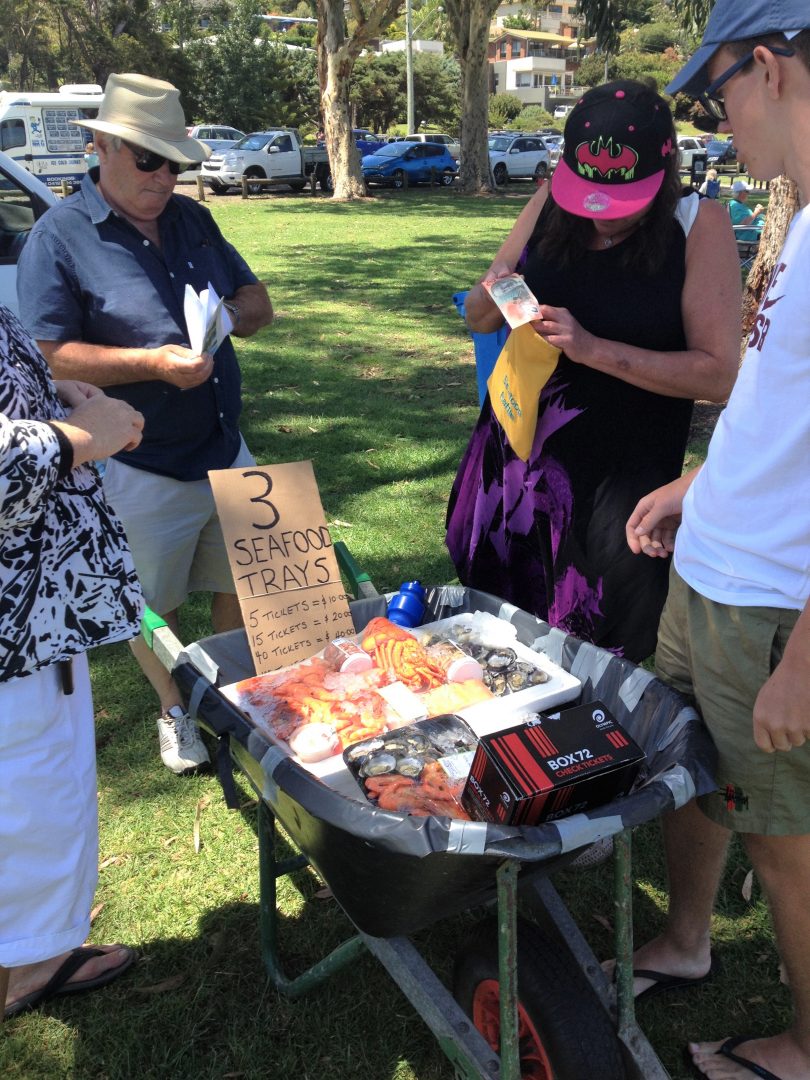
Fundraising efforts by Merimbula Angling Club included raffling off this wheelbarrow full of seafood. Photo: Elka Wood.
“People tend to think we’re a government organisation because we look the part, I guess,” Teston says, gesturing to her smart navy blue uniform. “But that’s far from the truth – we do receive funds from a levy the government takes on every boat registration but that only just covers the fuel for the boat on our training days.”
One look at the rescue boat, moored on a closed jetty in front of the building, goes some way towards explaining how Marine Rescue literally burns through funding.
“It has two engines,” Teston explains, “and it’s designed to go really really fast because if someone is stuck on the rocks, we need to hold them off until more help can get there.”
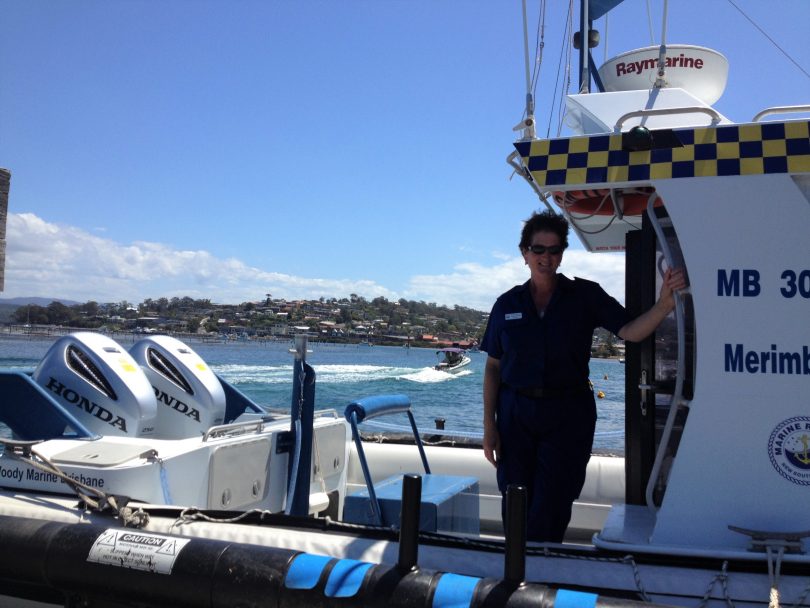
Merimbula Marine Rescue’s Deputy Unit Commander Sonja Teston on the unit’s rescue boat. Photo: Elka Wood.
The Merimbula unit works closely with Eden Water Police and Marine Rescue groups up and down the coast, and the types of boats used are strategically staggered, says Teston, with fast boats, like the one in Merimbula, sandwiched between larger, less powerful boats, each having their strengths in different situations.
Volunteers run boat training once a week on Wednesdays and Coxen’s training even more regularly, Teston says, but the less exciting and lesser known job is sitting by the radio, which they do between 7 am and 5 pm every day before handing over to Sydney overnight.
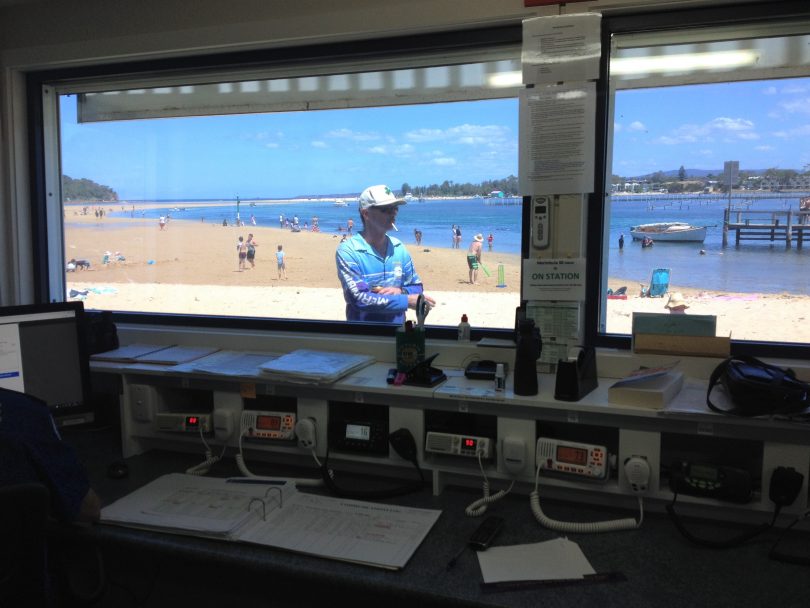
Not a bad view for Marine Rescue volunteers as they monitor radio channels. Photo: Elka Wood.
“We are an organisation which relies on volunteers but this is life and death so we all have training in first aid, firefighting and water safety, which includes passing physical tests. And you have to keep current on all those things, usually twice a year,” Teston says as she locks the rescue boat and turns on the alarm.
Back in the park, the auction has begun and bags of fish are held high as bidders stake their claim.
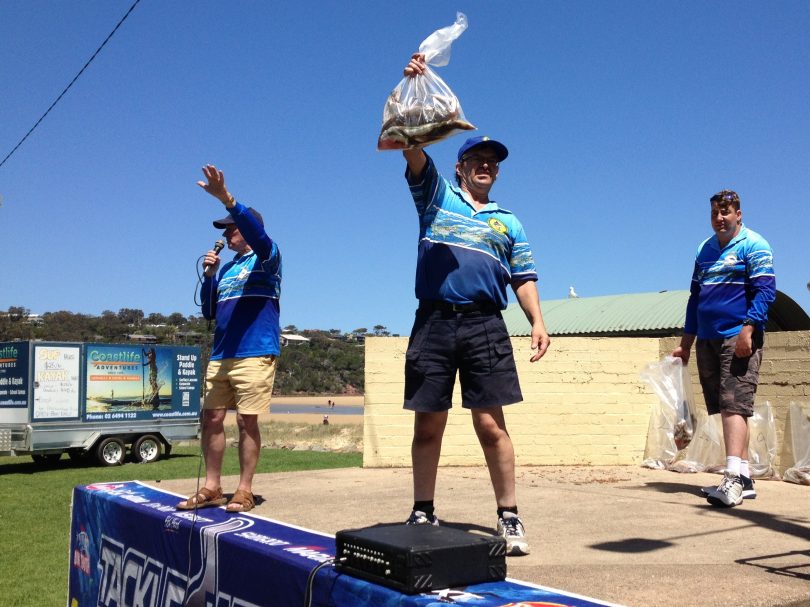
Merimbula Big Game and Angling Club’s annual charity fish auction was held on the weekend at Spencer Park. Photo: Elka Wood.
As well as fish donated by local anglers, business’ have donated accommodation, goods and gift vouchers to be auctioned, all benefitting Teston and her fellow dedicated volunteers – folks who’ll help you on the worst of days.
“It makes sense,” Young muses of the charity event. “It’s a beautiful thing, just rolling the town’s money around to where it needs to go.”







